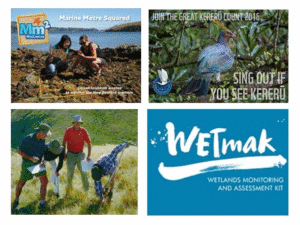Citizen science

Citizen Science can help local policy makers learn about local community members’ perceptions and views, and provide access to lay knowledge. But most importantly, Citizen Science, applied as an inclusive approach, has the potential to boost the participation of citizens in sustainability, conservation and public health policy processes by increasing science literacy, empowerment and community (local or global) cohesion, and contributing to a stronger sense of cohesiveness and collective action. The links below point to resources that highlight emerging aspects of citizen science to support both scientists and citizens who choose to participate in such collective endeavours.
Policy for citizen science
This 2018 paper by Christi Guerrini et al. focuses on three policy domains that are relevant to most citizen science projects: intellectual property (IP), scientific integrity, and participant protections. It provides some thought and guides as to how these should be considered as the popularity of citizen science expands.
Citizen science can improve conservation science, natural resource management, and environmental protection
This 2017 paper by Duncan McKinley and colleagues shows how citizen science is a powerful tool for tackling many of the challenges faced in the field of conservation biology. They describe the two interwoven paths by which citizen science can improve conservation efforts, natural resource management, and environmental protection. The first path includes building scientific knowledge, while the other path involves informing policy and encouraging public action. We explore how citizen science is currently used and describe the investments needed to create a citizen science program.
Citizen Science and Volunteered Geographic Information – overview and typology of participation
This 2013 paper by Muki Haklay highlights the historical context of citizen science and its more recent incarnation. It also covers some of the cultural and conceptual challenges that citizen science faces and the resulting limitation on the level of engagement. By drawing parallels with the Participatory Geographic Information Systems (PGIS) literature, the chapter offers a framework of participation in citizen science and concludes with the suggestion that a more participatory mode of citizen science is possible.
Citizen Science for public health
This 2018 paper by Lea Den Boeder and colleagues describes different types of citizen engagement in scientific research, or ‘Citizen Science’. They describe the challenges that Citizen Science poses for public health, and how these could be addressed. They finish by providing a draft framework to enable evaluation of Citizen Science in practice, consisting of a descriptive typology of different kinds of Citizen Science and a causal framework that shows how Citizen Science in public health might benefit both the knowledge produced as well as the ‘Citizen Scientists’ as active participants.
Green Paper Citizen Science Strategy 2020 for Germany
This Green Paper presents the aims, potential value and challenges of Citizen Science in Germany and lays out recommendations for developing a national strategy for engaging citizens in science. Citi-zen Science describes the process of generating knowledge through various participatory formats. Participation can range from the short-term collection of data to the intensive use of leisure time to delve deeper into a research topic together with scientists and/or other volunteers, to ask questions, and to get involved in some or all phases of the research process.
World Community Grid
The World Community Grid enables anyone with a computer, smartphone or tablet to donate their unused computing power to advance cutting-edge scientific research on topics related to health, poverty and sustainability. Through the contributions of over 650,000 individuals and 460 organizations, World Community Grid has supported 31 research projects to date, including searches for more effective treatments for cancer, HIV/AIDS and neglected tropical diseases. Other projects are looking for low-cost water filtration systems and new materials for capturing solar energy efficiently. [Disclaimer: I have signed up to the World Community Grid so my computer can participate in some of these endeavours.]